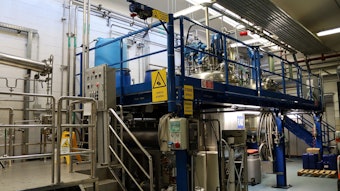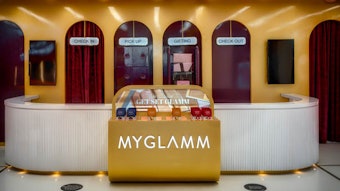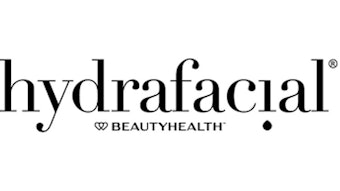- In considering a manufacturing partner, ensuring the company’s key product offerings are in line with what you want to sell is one of the most important considerations.
- In addition to cutting-edge R&D, many private label partners have marketing teams to work with brand owners on packaging, design and sales strategy.
- In creating a marketing story, R&D departments are often overlooked, and the story can be enriched and gain depth with the insights from the chemist’s viewpoint.
- There can be tremendous cost and time savings by choosing private label, due, in part, to a manufacturer’s feel for ingredient costs and trends.
In the past, the term “private label” didn’t always conjure up the most appealing synonyms. “Generic,” “store brand” or “impersonal” may have come to mind—not exactly incentives for a company looking to start its own branded line of personal care products. A savvy company, though, will realize that the terms that should come to mind are more along the lines of “innovative,” “personalized” and “profitable.” According to the Private Label Manufacturers Association, private label sales in the U.S. alone have increased by 14% in the past three years, reaching $86.4 billion across all retail outlets.
From small hair salons looking to sell products with their names on it to large retailers looking to branch out into their own line of cosmetics, private label manufacturers provide plenty of solutions to make the lines successful for years to come. Still not convinced? Here are answers to some common concerns about going the private label route.
Q: What should I look for when choosing a private label manufacturing partner?
A: One of the most important considerations is that the company’s key product offerings are in line with what you want to sell initially—and a few years in the future as well. “Ensure that your brand growth plan, including messaging, performance differentiations and a three-year product development plan, are in line with the array of products the private label manufacturer offers,” recommends Krista Medlock, director of marketing at CBI Laboratories, based in Fort Worth, Texas. Sundeep Gill, vice president of research and development at Hayward, California-based Sun Deep Inc., agrees it’s wise to choose a manufacturer based on specialty. “Although many manufacturers can design and make a variety of different products, it is important to focus on what they do best. This way, cost and innovation can be optimized.”
Q: Will the products be high-quality?
A: In a word, yes. Today’s private label manufacturers have top-notch research and development scientists with technology that rivals the large brands creating products in house. “The biggest trends continue to be in antiaging products, men’s lines and babies’ lines, but we see a huge untapped potential in creating both natural preservative systems and high performance complexes containing new and unique raw materials,” says Prakash Purohit, president of Naturich Labs, Inc. in Garland, Texas. “As a commitment to our future, we opened a new state-of-the-art R&D lab in India and our own microlab here in Texas just to further develop these latest demands of the industry.”
Gill agrees that the R&D-focused setup of a private label manufacturer gives them several advantages. “Private label manufacturers tend to have better access to advanced and cutting-edge technologies and information because their focus is more centralized to product development and research, rather than just finished goods sales,” notes Gill. “Not to mention, the volumes [of ingredients used by] private label manufacturers tend to be higher, which attracts more innovative raw material suppliers.”
Moreover, the products made by private label manufacturers aren’t just found in supermarkets or drugstores. “Our products in the U.S. are retailed in places such as high-end salons and spas, Sephora, Ulta and department stores such as Barneys and Saks Fifth Avenue,” adds Purohit.
Of course, it’s essential to do your homework first to ensure the manufacturer is reputable and has a history of success. “Your product line should not only have a good marketing story, but the evidence of performance to support it,” says Medlock. “Remember, you are not ‘just’ carrying a line—this is your brand.”
Q: Will my product line be unique, or will it be the same as every other one offered by the private label manufacturer?
A: In some cases, it will not only be unique—it will be custom-formulated to your specifications. “We make everything custom so the product range we can develop and manufacture is very inclusive of all body, skin and hair care products,” says Gina Ferrall, vice president and chief operating officer of Garland, Texas-based GDMI, Inc.
A private label manufacturer worth its salt will not only have a cutting-edge R&D team to create products with a wide range of ingredients, scents and benefits—it will also have a marketing team to work with you on packaging, design and sales strategy to ensure your line is distinctive. “If a manufacturer has an in-house marketing person, use them, particularly if you are a new brand marketer,” says Medlock. “That person can be instrumental in providing a springboard for brand success.”
Some private label companies dedicate an entire branch of the operation to marketing efforts. “We have a separate marketing and sales division called DALLAS-IPG, which provides our client with turnkey solutions—from product concepts to product positioning to full-blown designs of product displays,” says Purohit. “We also have our own graphic design services in-house that are readily available to assist clients with various design options.”
Gill also emphasizes the R&D team’s involvement when it comes to marketing the product. “It is not only important for all marketing teams to be involved with the development products, but also to have the R&D chemists involved with all discussions including branding and marketing copy,” he says. “This crucial department is often overlooked in the development process and it is often surprising how much insight and depth can be added with the chemist’s viewpoint. This is especially so when advanced technologies are employed and need to be thoughtfully explained in the marketing and romance copy so the average person can grasp your concept quickly.”
Q: Do private label lines offer natural or organic products?
A: Absolutely. “Sun Deep Inc. offers bath, body, hair and antiaging care products targeted for the natural and organic care market,” says Gill. “We specifically exclude petroleum-derived ingredients or any ingredients with objectionable INCI names. We often get questions concerning U.S. Department of Agriculture organic products, as we have many different formulations that are already certified and have had great success in the industry.”
“Naturich Labs is an FDA-registered facility, licensed to manufacture OTC products such as sunscreens, anti-dandruff and anti-acne products,” notes Purohit. “We are also an Organic Certified Facility for manufacturing organic products.”
Q: Couldn’t we do it for less money ourselves?
A: Not often, and especially not for a smaller start-up company. Ferrall notes, “There can be tremendous cost and time savings [by choosing private label]. Manufacturers typically have a good feel for ingredient costs and trends so they can eliminate a great amount of trial and error with developing a product.”
Gill agrees. “Seldom do people truly realize the immense undertaking of designing a successful product line, not to mention actually designing and operating a reliable and efficient manufacturing operation,” says Gill. “If you can imagine purchasing a single cup of sugar from a corner grocery store versus a sack from a wholesale retailer, you can quickly see the economy of having a primary private label manufacturer who designs and manufacturers multiple brands from across the industry.”
Lisa Doyle was formerly the associate editor of GCI magazine and is a freelance writer in the Chicago area. Her work has appeared in Skin Inc. magazine, Salon Today, America’s Best, Renew and Modern Salon.










